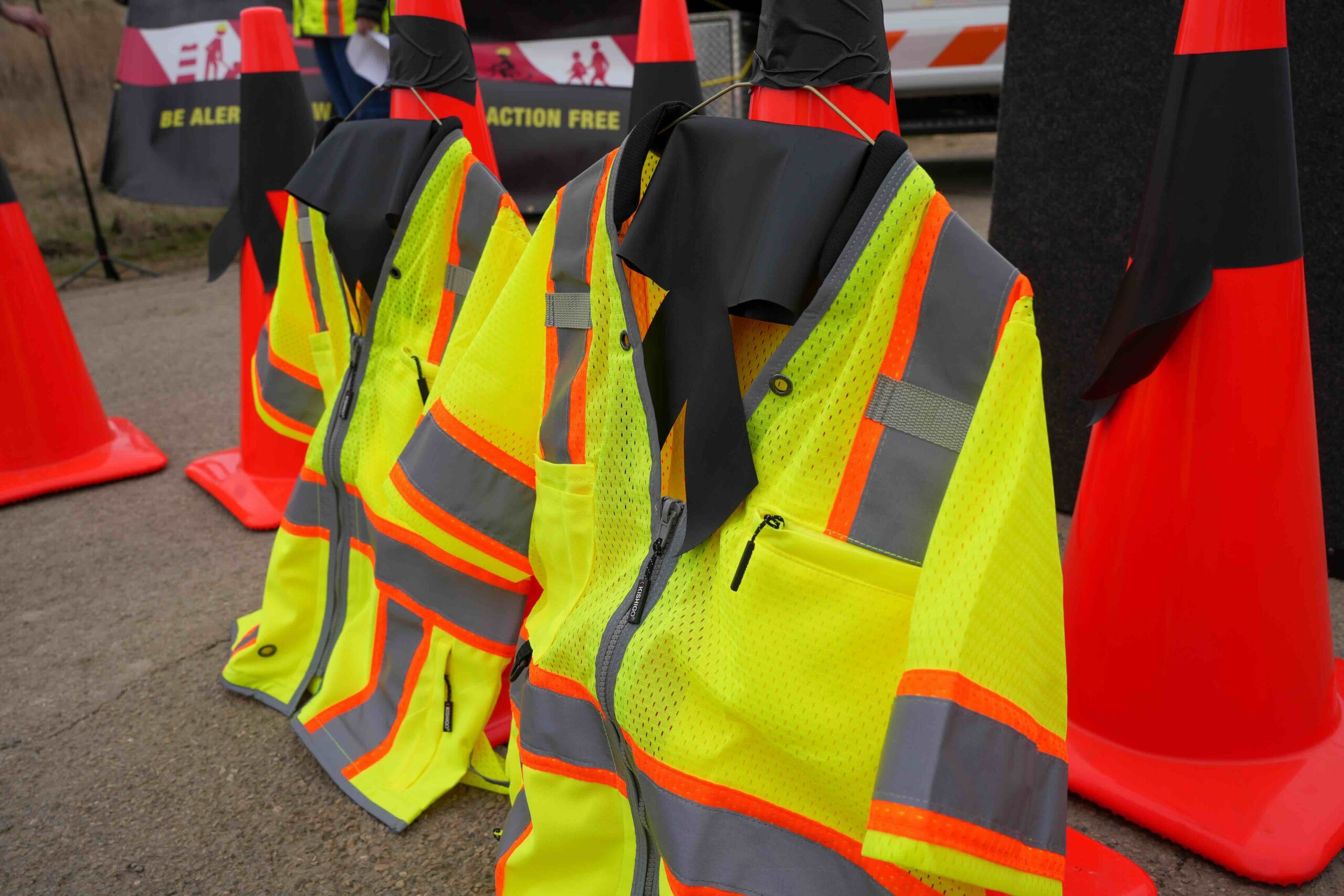
April 25, 2025
By Lane Kimble
It wasn’t the whipping wind gusts or windchill in the 30s that made Jason Voelker wish he were someplace else Monday morning.
No, it was the two yellow safety vests draped over orange construction cones
–and what they represented–that chilled him to the core.
“I would rather not have to come here next year and honor or remember a fallen worker,” Voelker said. “Instead, let’s celebrate a year with zero fatalities or injuries.”
Voelker, who is Century Traffic’s vice president, was the closing speaker at WisDOT’s kickoff event for National Work Zone Awareness Week, held near a Rock Road Companies work zone along I-39/90 just east of Madison.
It’s the first of six events to be held across the state all season long.
As interstate traffic rushed 50 yards behind him, Voekler told the story of one of his employees.
Andrew Skupniewitz was grooving pavement for marking on I-90 near Tomah last November when a suspected drunk driver crashed into him.
Skupniewitz, 35, died at the scene.
“That day, we not only lost a teammate, but that family lost a husband, a son, and a brother,” Voelker said.
Skupniewitz was not the only worker killed in a crash last year. Arrow-Crete employee Priciliano Alvarez was hit and killed in Pewaukee in June.
Their deaths, along with eight other people in cars, brought 2024’s total to 10 work zone deaths according to the latest WisDOT data. That was up from nine in 2023.
Five-year figures show there were more than 10,300 crashes in work zones resulting in 3,680 injuries and 56 deaths.
“These workers here today and across Wisconsin… put themselves at risk each and every day,” WisDOT Secretary Kristina Boardman told the crowd. “We all need to work together to prevent these crashes. Each of us has the power to make a difference.”
To Boardman’s point, WisDOT and the State Patrol have implemented technology to try and protect workers and first responders along roads.
Construction crews have access to crash attenuators mounted to the back of vehicles to slow down collisions and automated lights that warn drivers when traffic is slowing ahead.
State Patrol troopers are starting to use technology in their squad cars that allow them to warn drivers of an emergency ahead via apps like Google or Apple maps. Still, the onus falls on all of us, as drivers, to do our part.
“Workers should not have to risk their lives doing road construction,” State Patrol Superintendent Tim Carnahan said. “Put the phone down, move over, be patient and slow down.”
Voelker knows he can’t bring back Andrew or anyone else who died. He only hopes his words on a cold and gusty day this week carry to the hearts and minds of anyone who will listen.
“Every day when you get in your car you make a choice,” Voelker said. “You make a choice to drive sober. You make a choice to put your phone down. You make a choice to slow down when you get to a work zone.
“Everyone in that work zone wants to get home.”
